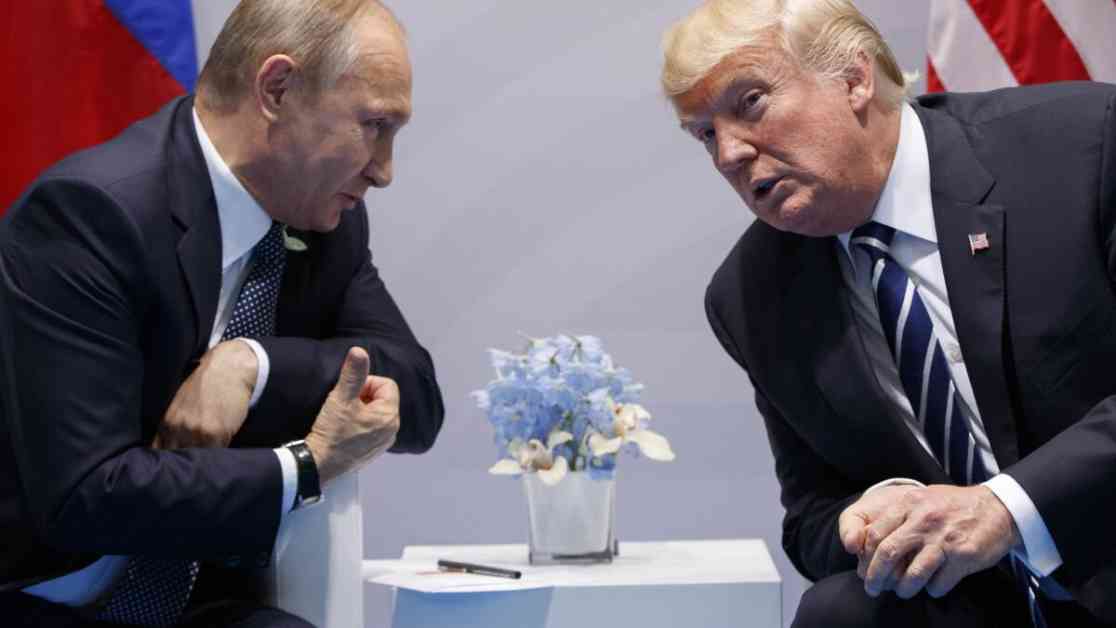Donald Trump and Vladimir Putin have a relationship that is both intriguing and complex. While they often publicly praise each other, their private interactions remain shrouded in secrecy. Both leaders are known to be transactional and hold onto grudges. Their dynamic is a mix of admiration, suspicion, and power play, making it one of the most significant relationships on the world stage.
As President-elect Donald Trump gears up for his second term, his interactions with Putin will be closely watched. Trump’s “America first” foreign policy stance has raised concerns about his approach towards Russia, particularly on issues like Ukraine, sanctions, and NATO. The dynamics between the two leaders have been marked by moments of public deference from Trump towards Putin, as well as controversies like Trump siding with Putin over U.S. intelligence agencies.
In the period between Trump’s first and second terms, there were reports of undisclosed phone conversations between Trump and Putin, hinting at a continued dialogue outside official channels. As Trump enters his second term, he faces challenges like the conflict in Ukraine and the shifting global power dynamics with Russia and China at the forefront.
Following Trump’s re-election, there were signs of a nuanced exchange between Trump and Putin, with compliments and gestures that hinted at both conciliation and strategic positioning. The appointment of key officials in Trump’s administration, like Tulsi Gabbard, raised concerns about pro-Russian influences in the White House.
One area where the Trump-Putin relationship will be tested is Ukraine. Trump’s choice of Keith Kellogg as a special envoy for Russia and Ukraine signals a potential shift in U.S. policy towards the region. There are expectations that Trump will push for a deal that could impact Ukraine’s territorial integrity and its NATO aspirations. However, experts caution that Putin’s ambitions for Ukraine might exceed what Trump is willing to concede.
Despite the uncertainties surrounding the Trump-Putin relationship, the broader implications for global security are significant. Trump’s past criticisms of NATO and his unpredictable approach to foreign policy have raised questions about the future of the transatlantic alliance. While some observers believe that Russian expectations of the Trump presidency are low, the potential for strategic shifts in global security cannot be ignored.
Former German Chancellor Angela Merkel’s reflections on Trump and Putin offer a glimpse into the personal dynamics between world leaders. Merkel’s observations about Trump’s fascination with autocratic traits and Putin’s guarded demeanor shed light on the complexities of international diplomacy. As Trump prepares to navigate his second term and engage with Putin on critical issues, the world watches with anticipation and apprehension.
The evolving Trump-Putin relationship underscores the delicate balance of power in global politics and the nuances of personal dynamics in international relations. As the two leaders navigate their interactions in the coming years, the implications for global security and stability remain a central concern for policymakers and analysts alike.



























